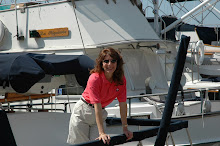HURRICANE TUG OF WAR
Hurricanes are like wars, I have decided. For one thing they hurt a lot of people indiscriminately. And, for another, if they don’t hurt you, both hurricanes and wars force us to ask the question, “What should I do to help?”
In the wake of Hurricane Charley, trying to get to the correct answer to that question, I have been pulling for both sides of a huge tug-of-war in my brain.
I’ll explain, but first let me fill you in on what happened.
Hurricane Charley came ashore as a Category 4 on August 13. It cut through Sanibel and Captiva Islands and drove straight up Charlotte Harbor. It pounded Punta Gorda and Port Charlotte, the two towns on either side of the bay, and wrecked lives and homes in numerous inland towns from here to Jacksonville. It killed people. It left many hundreds injured, hungry, thirsty, hot, homeless, and out of work. It ripped off roofs, picking up seven-pound roofing tiles and hurtling them through the air and into windows, walls and what have you.
During the worst of the storm all Vic and I could do was anxiously wonder what Charley was doing to our charter boat fleets. We had 12 trawlers tied up in slips at Marinatown Marina in N. Fort Myers on the north bank of the Caloosahatchee. But we were especially worried about our fleet of 9 sailing vessels, which we keep at Burnt Store Marina near Punta Gorda, which was in the hurricane’s crosshairs. Of course, we imagined the worse.
Well, we were lucky. Very lucky.
Our sailing fleet at Burnt Store Marina was pretty banged up, but all the vessels stayed afloat and remained in their slips. They required some repairs, but only three needed the attention of a boat yard.
Though powerful, Charley was a relatively small storm. The eye wall was only ten miles wide, they said. Consequently, our power fleet 20 miles south of Punta Gorda in N. Fort Myers did not suffer as much damage. In fact, only one vessel was out of commission for a short while.
We were lucky twice at our headquarters here at Marinatown Marina in N. Fort Myers. We were on the south side of the typhoon’s rotation, so we had expected southwest winds to push ocean water up the Caloosahatchee River and create a storm surge of more than 10 feet. It didn’t happen. The thinking is that because Charley was a fast-moving storm there was not enough time for it to push a large volume of water up the river.
Yes. We were very lucky. This brings me back to the question I asked myself. What should I do to help all those people who were not so lucky.
Well, I thought, I could load the car up with canned goods and bottled water and take them to a shelter. That will help them, and I’d feel better, too.
Or, maybe it would be better if I paid attention to business. There are insurance forms to complete, calls to make, emails to send, and customers to find. But, I thought, wouldn’t that be unseemly, promoting the joys of cruising while so many are hurting?
On the one hand I wanted to be part of the good Samaritan effort. Ordinary people set up their own personal help stations on the highways with hand-lettered signs offering free water, ice, sandwiches, diapers, blankets and toiletries. The South Florida Marine Industry Associations loaded a semi-tractor trailer with supplies and delivered it to people in need in the marine community. Boat U.S. and West Marine organized boaters to load up their cars and deliver fuel and ice to nursing homes and assisted living facilities. The Associated Press wrote about these things and sent out an article called, What Makes America Great. That is so true. The people who took that initiative are heroes in my book.
But I thought, I had work to do, lots of it, to get the business humming again. The grocer pulls overtime to get his store shelves restocked. The gas station owner can’t wait to start pumping gas again. Shouldn’t the lady who charters yachts and puts on boating courses do as much?
I guess you could say my mental tug-of-war ended in the recognition that we needed to do both. Helping people in trouble was important and especially so in the short term. Our staff gathered up several boxes of extra bedding and galley items from charter boats past and donated them to the relief effort.
The long-term goal is getting businesses humming again so visitors will return to Southwest Florida. Tourism is, after all, the engine of growth for Florida. Business owners who get their businesses back up and running as quickly as possible are not only doing a service for themselves, but for the community.
If some who do not live in Southwest Florida are concerned about coming here on vacation, I say, don’t be. Florida’s Southwest coast is pretty close to humming in all cylinders and the welcome mat is out.
In the wake of Hurricane Charley, you may also ask: What can I do to help? I know the answer.
Come visit, that’s what.

